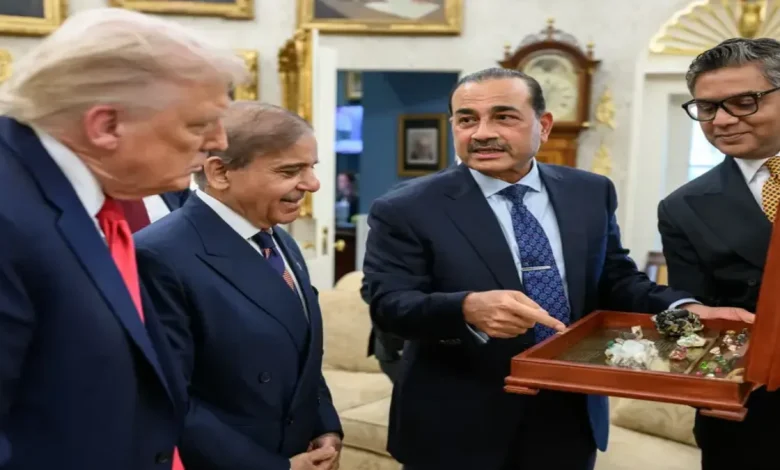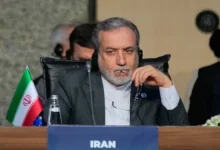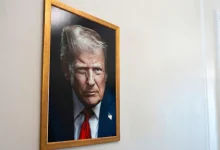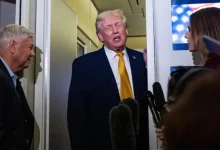Pakistan Ships First Batch Of Rare Earth Minerals To US After Trump Meeting; India Monitors Strategic Partnership

Pakistan Army Chief Gen Asim Munir’s presentation of mineral samples to US President Donald Trump in late September has materialized into concrete business agreements between the two nations, centered on rare earth minerals and critical resources. Following the meeting where Munir and Prime Minister Shehbaz Sharif displayed what were described as geological specimens, the foundation for comprehensive minerals trade has been established.
Munir’s White House Presentation
During the Oval Office encounter, social media users mockingly labeled Munir a “salesman” after he showed Trump geological samples believed to be rare earth or critical minerals, though American officials did not verify the precise nature of the colorful stones displayed in a wooden box. The symbolic gesture aimed to showcase Pakistan’s mineral resources directly to Trump, capitalizing on America’s need for rare earths essential to key industries and defense systems.
Initial Mineral Shipment Reaches America
Recent developments reveal that Pakistan has delivered its first shipment of enriched critical minerals to the United States, including antimony, copper concentrate, and rare earth elements. This marks the first concrete outcome under the emerging US-Pakistan minerals cooperation agreement, transitioning from diplomatic gestures to actual commerce.
Pakistan’s Frontier Works Organization previously signed an agreement with US Strategic Metals covering extraction and export of rare earth metals, alongside plans for value-added processing facilities within Pakistan. A poly-metallic refinery is planned to process critical minerals into intermediate and finished products for American customers. The multi-hundred-million-dollar partnership indicates America’s interest in Pakistan as an alternative source of critical minerals.
Additionally, US-listed Nova Minerals has executed a strategic memorandum of understanding with Pakistani firm Himalayan Earth Exploration (HEE). The collaboration focuses on exploration, technology transfer, capacity development, and commerce in high-tech metals including antimony, gold, and rare earth elements. According to Nova’s CEO, initial investments could total hundreds of millions of dollars.
Pakistan’s Critical Mineral Resources
Pakistan possesses potential to become a major supplier of critical minerals for the United States and international markets. Rare earth element deposits are estimated at concentrations up to 1,400 mg/kg in sections of the northern Himalayan and Karakoram mountain ranges. Light rare earths outnumber heavy ones at approximately a three-to-one proportion. Pakistan also contains substantial reserves of antimony, copper, gold, tungsten, lithium, cobalt, and additional strategic minerals. The majority of these resources remain unexploited, with total estimated mineral wealth reaching up to $68 trillion.
India’s Response to US-Pakistan Minerals Partnership
Indian strategic and government circles are carefully observing the expanding US-Pakistan minerals collaboration. A sustained minerals corridor connecting Pakistan and the United States could strengthen Pakistan’s economic capabilities and establish strategic safeguards for American access to these resources. India maintains its own mineral cooperation arrangements with the United States, suggesting a major redirection of US attention toward Pakistan remains unlikely in the immediate future.
Diversifying critical mineral supply networks represents a strategic imperative for the United States. Pakistan’s developing minerals sector provides an appealing supplementary source for America. For Pakistan, the partnership offers technology transfer, foreign capital, and opportunities in value-added mineral processing.
Obstacles Facing Pakistan’s Rare Earths Industry
Environmental considerations, regulatory inadequacies, and restricted processing infrastructure remain significant challenges for Pakistan in rare earth exploration and refinement. However, if Pakistan addresses these obstacles, cooperation with the United States could develop into a reliable mineral supply chain with enduring strategic importance.




